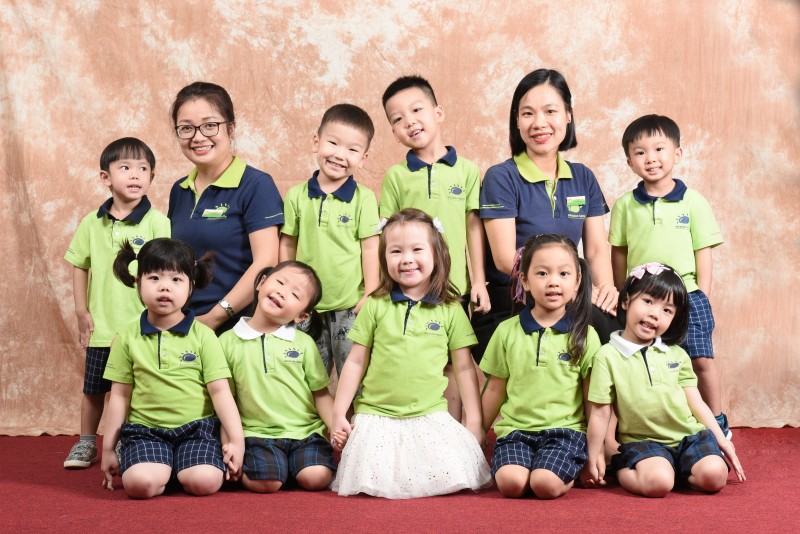
Pre-Kindergarten (4 – 5 years old)
After Pre- Kindergarten our children will get:
Physical
Ages 4 to 5
Physical
• Handles blunt scissors and simple tools safely with adult guidance
• Very active; uses slides, climbers, tunnels, and balance beams in many ways
• Hops, gallops, begins learning to skip; pumps swing
• Toilets self; washes self; helps clean up toys; helps with “jobs”
• Enjoys using variety of open-ended art media, and creative movement to all kinds of music
• ‘Workaholic” about learning through play; often becomes overtired
• Handles crayons easily; begins to use scissors
• In all physical areas, 5 year-olds progress easily; eye hand coordination is not complete; may spill or knock over things; establishes handedness
Intellectual
• Talks a lot; compound sentences and increased vocabulary; the “age of questions”
• Loves to experiment; wants to know how and why; learns by doing; can tell others her or his observations
• Can increasingly use simple computer software with parents and peers; do simple searches; and use software to express ideas in print or illustration
• Likes books, stories, and acting them out; can make up own stories, songs and “jokes”
• Designs and constructs; uses original ideas with art and blocks
• Still somewhat confused about “real” or “pretend”; understands yesterday, today and tomorrow.
• Can match and sort; makes many associations; enjoys nature and cooking activities; likes simple science
• Begins to grasp the idea of numeracy and counting
Social
• Enjoys peers, makes “friends” and plays cooperatively; often plays or builds with a purpose and delegates roles; interested in world outside the family
• Can share and take turns, but sometimes teases or calls names
• Enjoys participating as member of group; enjoys “jobs” and holidays
• Enjoys imitating adults and using positive social language and manners (copies “bad” words too)
• Empathy, sensitivity, and conscience start to develop
• Can play simple group games and can accept rules and experiences
Emotional
• Four-year-olds show many emotions, most of them loudly
• Four-year-olds can separate from parents fairly easily for child care
• Four-year-olds are impatient and change moods often; test limits; five-year-olds are more even tempered and cooperative
• Four-year-olds want to be more independent than they are able, and still resist unpredictable changes; five-year-olds can accept change more easily, and are comfortably independent
• Four-year-olds still need lots of praise and reassurance
• Four-year-olds may brag or boast; five-year-olds do less “showing off” and begin to have a comfortable sense of who they are and what they are able to do
• Both four- and five-year-olds begin to learn how to give and receive; both groups sometimes develop fears and nightmares.
Social
• Plays well with 1 or 2 peers sometimes, and participates in group activity for short times; wants to have friends
• Learning to tell own wants or needs with words to others
• Plays with same toys as others in a small group; sometimes will take turns or share; sharing increases by age 4
• Watches and copies adult modeling; begins to show sympathy
• Pretends; plays house or imitates family and other adult roles
• Notices sex differences
• Enjoys own birthday and simple celebrations, especially at own home.
Emotional
• Still fears new things; likes rituals and consistent routines
• Wants to please; generally cooperative with adults
• Can become jealous and revert to baby hood for attention
• Wants to try to do things independently (self-care)
• Thrives on praise, hugs, and positive reinforcement
• Sense of pride in accomplishments
• Still possessive about belongings, toys



